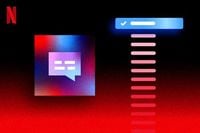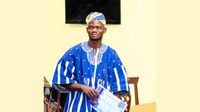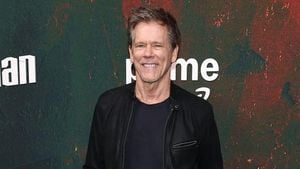On April 2, 2025, Netflix announced a significant enhancement to its viewing experience, allowing users to select from a full list of available languages for any title when watching on TV. This feature, which was already accessible on mobile devices and web browsers, comes as a response to the growing demand for multilingual content, with nearly a third of all viewing on Netflix consisting of non-English stories.
According to Netflix, the platform now boasts a catalog that includes a wide variety of TV shows and movies in over 30 languages. This expansion reflects the increasing interest in international content, as seen with popular titles like Squid Game from Korea, Berlin from Spain, and All Quiet on the Western Front from Germany. The streaming giant has received thousands of requests each month for language availability, indicating a strong desire among viewers to engage with diverse narratives.
In the context of language learning, Netflix has also introduced features intended to support users in acquiring new languages. The platform allows viewers to watch their favorite shows with different dubbings and subtitles, catering to those who wish to learn a foreign language while enjoying their favorite content. This initiative not only enhances the accessibility of shows and movies but also encourages multilingualism among its users.
As Netflix continues to expand its offerings, the company remains committed to providing an inclusive viewing experience. The new language selection feature is expected to enhance the enjoyment of international films and series, making it easier for users to immerse themselves in different cultures.
In a related development, on the same day, Global Voices published an interview with Issahaku Tidoo Abass, a Dagbani-language activist and dedicated Wikimedian from Tamale, Ghana. Abass, a professional teacher and member of the Dagbani Wikimedians User Group, has made significant contributions to the Dagbani Wikipedia, which aims to document and promote the Dagbani language, spoken by approximately 1.1 million people in northern Ghana.
Since joining the Wikimedia movement in January 2023, Abass has made over 35,811 contributions across various Wikimedia projects, focusing primarily on Dagbani Wikipedia, English Wikipedia, and Wikidata. The Dagbani Wikipedia, launched in 2021, has grown to contain over 11,000 articles, becoming a vital resource for speakers of the language.
Despite the progress, Abass highlighted the challenges faced in preserving the Dagbani language both offline and online. While Dagbani serves as a lingua franca among various ethnic groups in northern Ghana, literacy in the language remains low compared to English, and the availability of written materials is limited. Most knowledge is transmitted orally, which poses challenges for digital documentation.
Abass noted that while Dagbani content is increasing online, more resources are needed. He emphasized the importance of engaging language experts and collaborating with students to enhance the quality and quantity of Dagbani content on Wikimedia platforms. The Dagbani Wikimedian community has organized training programs and edit-a-thons to attract new volunteers and improve the skills of existing contributors.
Abass's motivation for engaging in digital activism stems from a desire to bridge the knowledge gap for African languages, including Dagbani. He believes that contributing to Wikimedia projects allows him to make knowledge freely accessible in his native language, empowering local communities with educational materials.
In the realm of health care, effective communication is crucial, particularly for patients who speak languages other than English. UCHealth, a health care provider in Colorado, has been at the forefront of addressing this issue by providing qualified medical interpreters on-demand at no charge for patients. This service is essential for the approximately 21.6% of the U.S. population who speak a language other than English at home, which translates to about 67.8 million people.
According to Scott Suckow, director of UCHealth Language and Cultural Services, the demand for interpretation services has been growing at a rate of 25 to 30% per year. UCHealth provides around 75,000 interpretation sessions each month, highlighting the increasing need for such services in a diverse society.
Medical interpreters play a vital role in ensuring that patients fully understand their care and that providers can connect deeply with their patients, even when language barriers exist. Professional interpreters, like Mario Flores, emphasize the importance of accurate and timely interpretation, which ultimately enhances patient understanding and treatment compliance.
Data from the National Institutes of Health indicates that patients with limited English proficiency are 25% less likely to receive preventive care services and 50% more likely to face adverse health outcomes compared to English-speaking patients. These disparities underscore the necessity of language services in providing equitable health care.
In another significant development on April 2, 2025, Vatican News expanded its multilingual service by adding Azerbaijani as its 56th language. This addition coincides with the 20th anniversary of the death of Saint John Paul II, the first Pope to visit Azerbaijan. Bishop Vladimír Fekete emphasized that Azerbaijani is spoken by around 30 million people worldwide, making this initiative crucial for local Catholics who often rely on reliable sources to learn about the universal Church.
Paolo Ruffini, Prefect of the Vatican Dicastery for Communication, remarked that every language plays a vital role in the Church's communication network. The addition of Azerbaijani is seen as a way to foster dialogue between religions and provide access to the Pope's message to a broader audience. This initiative aims to strengthen the fabric of communication within the Church and build bridges of understanding in a world often divided by conflict.
As these various initiatives unfold, it is clear that the importance of language accessibility continues to grow across different sectors, from entertainment to education and health care. Each effort contributes to a more inclusive society where diverse voices and languages can thrive, fostering understanding and connection among people from all walks of life.







